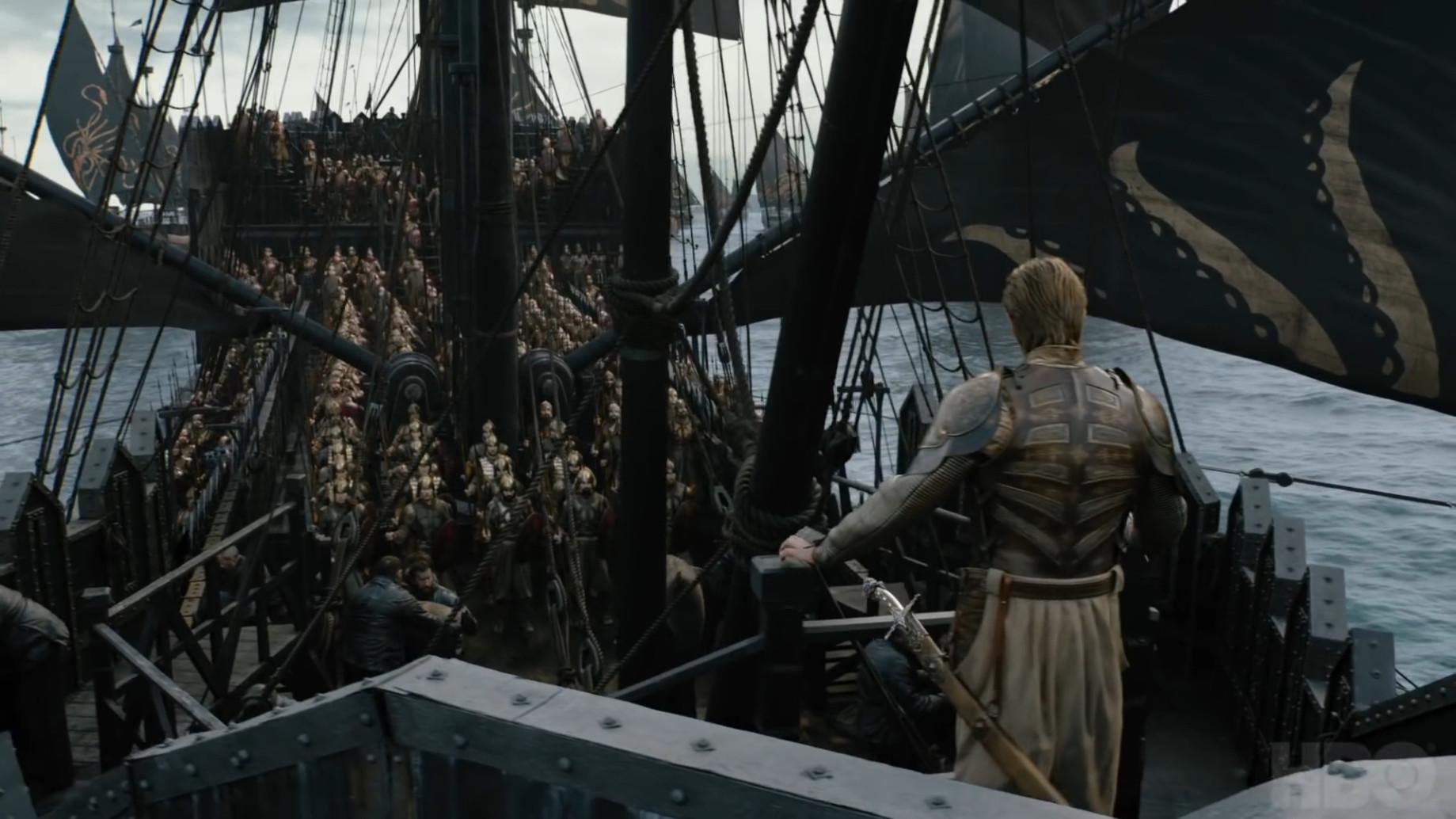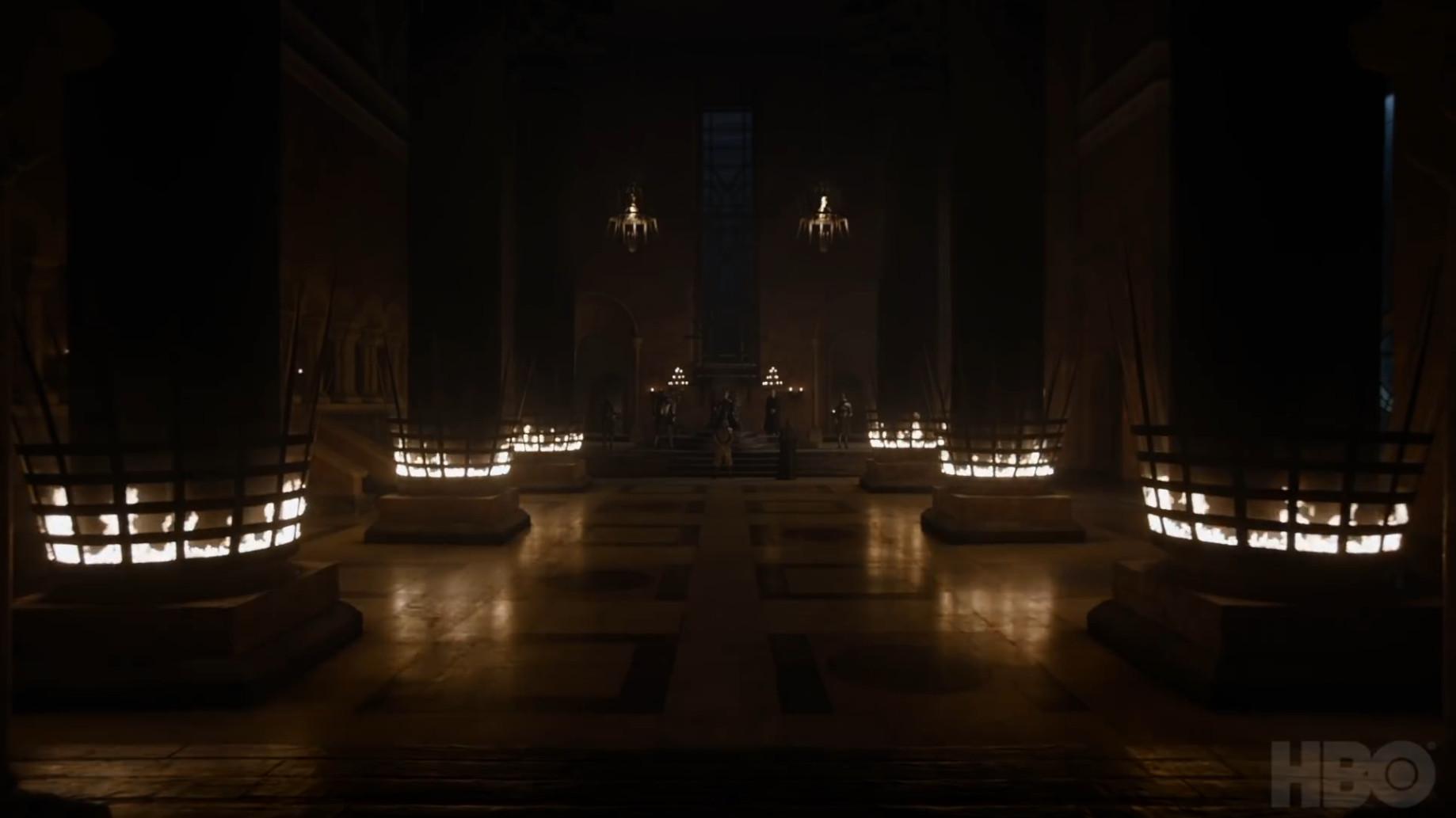In 17 days, Game of Thrones will finally return. And 35 days after that, Thrones will end. In less time than it seemingly takes Littlefinger to zip around to every corner of Westeros, showrunners David Benioff and D.B. Weiss will deliver a conclusion to the story George R.R. Martin first introduced 23 years ago—and in that precious time they’ll have to answer half a hundred pressing questions: Who will live? Who will die? Who will tell Jon he’s doing it with his aunt?
Separate from those series-shaping questions are countless smaller but still crucial details that the show may or may not explore in the final season. These are Thrones’ loose ends: the characters, places, events, prophecies, and more that the story has made audiences wonder about over the past seven seasons but has yet to satisfyingly wrap up. In the run-up to the final season’s April 14 premiere, we’ll be digging through these loose ends, looking at why they matter and how they could affect the endgame as we count down the days to Thrones’ long-awaited conclusion.
The Loose End
The Season 8 trailer gave us a glimpse of a Lannister-looking fighting force sailing toward Westeros aboard Euron Greyjoy’s flagship, the Silence.

Despite the gleaming locks of the figure in the foreground, those aren’t actually Lannisters; after the Loot Train Attack, there may not be enough Lannister soldiers left to load up the Iron Fleet. No, that armor-clad cargo crossing the Narrow Sea is Cersei’s solution to the sudden lack of Lannisters: the Golden Company, the most fearsome and skilled group of sellswords in the Free Cities. And as much as some watchers might wish the person surveying the assembled soldiers was long-deserted Dragon Queen concubine Daario Naharis, that blond with his back to the camera is likely the Golden Company’s leader in A Dance With Dragons, Harry Strickland.
In the Season 7 finale, Cersei tells Jaime that Euron hasn’t truly fled out of fear of the dead, as the king of the Iron Islands led Daenerys and Co. to believe at the conference in King’s Landing. Instead, Cersei has dispatched him to retrieve “the most powerful army in Essos,” which she’s contracted with the aid of the Iron Bank after paying her previous debt to the bank in Highgarden gold.
Although Cersei consented to a truce and professed her support for the fighters in the North, she’s planning to backstab them by siccing her sellswords on the survivors of the showdown with the White Walkers. But as book Cersei says in A Clash of Kings, “Loyal sellswords are rare as virgin whores.” As the final season starts, Westeros’s work-from-home monarch believes she’s bought her unborn baby a permanent place on the Iron Throne, but she may not be pleased by the part the Golden Company plays in the denouement.
Why This Loose End Matters
As the series’ resolution has approached over the past few seasons, prominent chess pieces have been subtracted from the board. The Golden Company is the most significant one to be added for the final season. And in light of the sellswords’ peerless reputation and uncertain allegiance, the Company could become the biggest wild card in Westeros as soon as it sets foot on land.
A bit of background is in order. The Golden Company has a hundred-year history that dates back to the aftermath of the First Blackfyre Rebellion. Its founder, Aegor Rivers, or “Bittersteel,” was a legitimized bastard son of Aegon IV Targaryen who fled to Essos after the death of Daemon Blackfyre, his half- brother. After a stint in the Second Sons, Bittersteel founded the Golden Company to preserve the power of the Blackfyres, and it quickly became the go-to Essos safety net for exiled Westerosi knights. The Golden Company’s current incarnation is still largely made up of exiles and descendants of the Blackfyre rebels, who carry the gilded skulls of their former captains to battle beneath their golden banners. Bittersteel’s skull is among them, which inspires their slogan: “Beneath the gold, the bitter steel.”
The Golden Company is so celebrated that a single slogan wouldn’t do. Its second catchphrase, “Our word is good as gold”—which, to be honest, sounds less like the motto of an elite military unit than a tagline from a poorly produced ad for a personal injury lawyer—alludes to the fact that by sellsword standards, the Golden Company is atypically trustworthy. In Bittersteel’s day, the city of Qohor refused to follow through on a payment, and the Company sacked the city (which the Dothraki had failed to do). After that, Bittersteel resolved never to break a contract, and the Company continued to honor that vow. The Company is allegedly undefeated, although it did take part in the third, fourth, and fifth Blackfyre Rebellions, all of which went nowhere. In recent years, it’s rarely had to take the field, because its name alone often ends battles before they begin.
Jorah Mormont, who in the TV timeline is a Golden Company alum, notes that “men who fight for gold will never fight as hard as men who fight for home.” Although other combatants have more to motivate them, the members of the Golden Company aren’t exclusively fighting for profit; according to one book character, “It’s home they want, as much as gold.” As exiles whose ambitions have been rebuffed before, they may view this assignment as a chance to pursue power and undo whatever disgrace sent them or their ancestors to Essos.
In the books, Strickland is a portly, ineffectual figurehead, but the casting of Marc Rissmann suggests that Strickland won’t be a weakling on screen. Nor will the well-trained corps he commands. In the books—and in Season 4, when Davos talks up the troop to the anti-sellsword Stannis—the Golden Company is reputed to be 10,000 strong, including infantry, archers, cavalry, and, crucially, war elephants, which would be more than a match for any opponent in Westeros that isn’t undead or a dragon (or both). In Season 7, Cersei says the soldiers number 20,000. Intimidation won’t work on wights, dragons, Dothraki, or Unsullied, but a fresh force of that size would make the mercenaries formidable adversaries for any of the combat-ravaged remnants of Westeros’s warring factions.
How Season 8 Could Address It
Cersei could keep the Company close as insurance against the White Walkers winning or a victorious Targaryen twosome marching south, setting up a last stand outside King’s Landing (which has worked out well before). In a narrative sense, though, it would be a bummer if Cersei recruited a crack team of mercenaries from a foreign land only to park them around the Red Keep like glorified gold cloaks.
Fortunately, we can’t count on Cersei to do the sensible thing. She may dispatch her sellswords to attack one enemy or another while it’s weakened from the fighting up north. When Tycho Nestoris tells Cersei that the Iron Bank has employed the Golden Company as repo men in the past, she answers, “I too would like them to recover some things that belong to me.” It’s not clear whether she means previously controlled territory, escapees Sansa and Tyrion, her House’s lost luster, or all of the above, but she probably can’t reclaim any of those things without sending the soldiers to do her bidding.
We’re sure to see Chekhov’s sellswords in action against someone, and each of the likely adversaries offers enticing set-piece possibilities. If the mercenaries fight the Dothraki, we could see some Rohirrim vs. Haradrim–style horse-against-elephant action. If they go up against the Night King’s Coalition of the Chilling, the elephants could clash with undead giants or mammoths. The Golden Company can fight from a distance, too. In the books, a tenth of the Company is composed of archers, and the last time Jon Snow faced an army with archers, he didn’t do so well.
Of course, if the late-arriving sellswords were to play a pivotal role in deciding the existential-stakes battle that the show has been building toward for the past seven seasons, it might seem a little like deus ex sellsword. But there’s no guarantee that Essos’s finest will even try to bail out the Lannisters. They may not serve Cersei at all.
The trailer supplies what seems to be a second, fleeting look at Strickland as he stands in the throne room with Euron and addresses Cersei (who’s flanked by Qyburn and the Mountain).

The question we can’t answer is whether he’s there to take orders or to issue them. As far as we know, Cersei hasn’t had any direct interaction with the Golden Company: Qyburn contacted them, Euron retrieved them, and the Iron Bank is presumably paying them (although the funds may be funneled through Cersei). It’s possible that Euron and/or the Iron Bank has made (or will make) some sort of side deal with the sellswords. When Cersei tells the Iron Bank’s emissary that “Euron Greyjoy is loyal to me,” Nestoris responds, “For now.”
Euron wants to marry “the most beautiful woman in the world,” but that’s not necessarily Cersei. If he decides a Targaryen is more to his taste—especially one who’s into offshore drilling—he might try to endear himself to Dany by backstabbing Cersei (although that could be tricky considering Dany’s alliance with Yara and her hookup with Jon). If the sellswords read the room, they may want to go with him; although they’re renowned in the books for being true to their word, they do break their contract with Myr when an opportunity arises to return to Westeros to back the claim of Young Griff. And although the Lannisters have a great credit rating, the bankers would sooner pivot to an upstart incestuous power couple than support the losing side. Even if Strickland’s word is as good as gold, his word will be wind when the gold goes away. It’s easy to envision a scenario in which Cersei’s avenging army becomes a conquering army pointed at Cersei herself.
If the Golden Company makes Cersei a prisoner inside her seat of power, Jaime might have to make a choice between honoring his alliance with his former enemies and helping his estranged sister. And if circumstances conspire to put Jaime within arm’s reach of Cersei—well, look for a loose end on that topic next week.
Disclosure: HBO is an initial investor in The Ringer.
